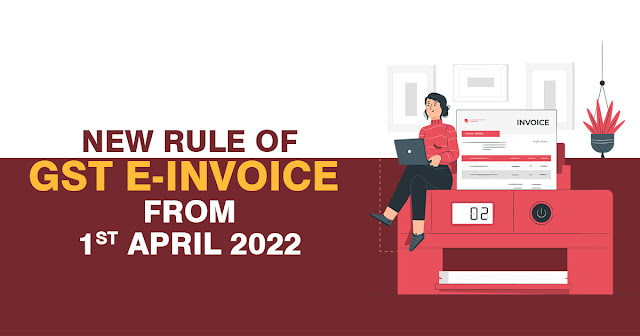E-invoice beneath the GST regime refers to a system where B2B Invoices are authenticated electronically through the GSTN for subsequent use on the common GST portal. Beneath the electronic invoicing system, an identification number would be provided with respect to every invoice via Invoice Registration Portal (IRP) to be handled through the GST Network (GSTN).
E-invoicing is a method beneath which the invoices are electronically made in the mentioned format average turnover towards the e-invoicing and would consist of the turnover of all the GSTINs beneath the single PAN all over India. E-invoicing beneath the GST regime in India would be executed in a phased manner in India, since 1st October 2020.
E-invoicing permits the real-time tracking of invoices made via a supplier, diminishing the frauds cases.
Major Highlights
- From April 1, GST e-invoice compulsory businesses with Rs. 20 crore turnover.
- The CBIC (Central Board of Indirect Taxes and Customs) diminished the turnover limit for the essential providing of the e-invoice (electronic invoice) beneath the Goods and Services Tax (GST) to INR 20 Cr. from the before mentioned limit of INR 50 Cr.
- The process is expected to influence the smaller business negatively, who would need to essentially provide the electronic invoices.
- Losses to create the valid invoice, the ITC on that would not be claimed by the recipient, except drawing the penalties.
- The same revisions might be tailored to suit the Government's digital economy plan.
- Notification 01/2022 which is posted on 24th February 2022, is expressed via the Central Board of Indirect Taxes & Custom that the minimum limit is going to be Rs. 20 Crore from the date 01 April 2022.
- As a result, the small businesses, mostly those that have the Rs 20 cr turnover, who provide the informal sale of the invoices or Kacha Bills would need to essentially provide the e-invoices.
- The same would be reported that only an enrolled e-invoice with the Invoice Reference Number (IRN) is supposed to be valid and non-adherence will result in non-compliance.
- This is needed to claim the input tax credit (ITC).
- The new system, which takes effect on the date 1st April, would add 180,000 GST identification numbers (GTINs), up via existing 240,000, to about 420,000, the official told on the state of anonymity.
Exemption From the E-invoicing
- Special Economic Zone Units (excluded via CBIC Notification No. 61/2020 - Central Tax)
- The insurer or a banking company or a financial institution, including an NBFC
- GTA (Goods Transport Agency) under GST Act- providing the services in context to the transportation of the goods by road in the carriage of the goods.
- Suppliers of passenger transportation service
- Service suppliers through the method of admission to the exhibition of cinematograph films on multiplex screens.


Comments
Post a Comment